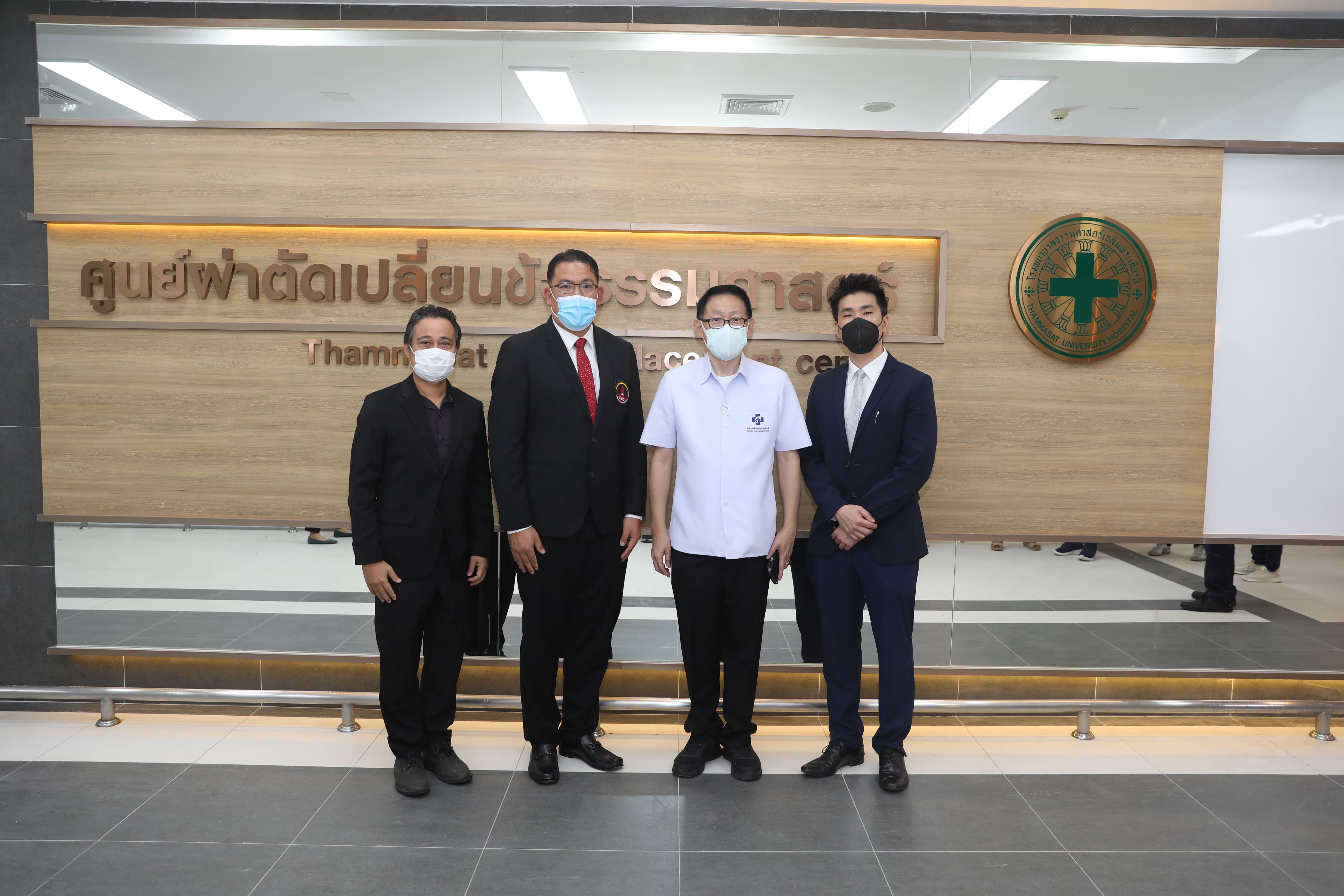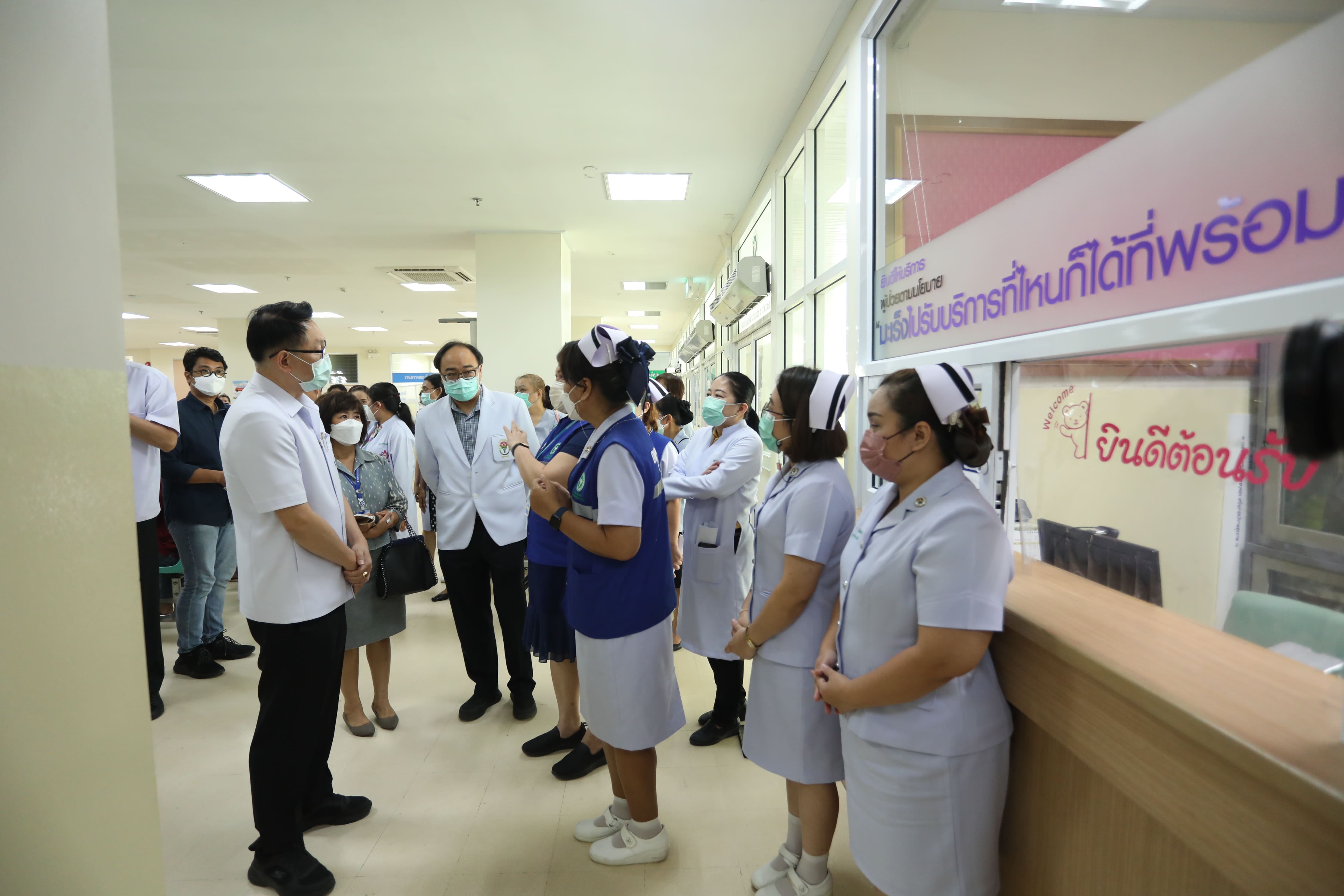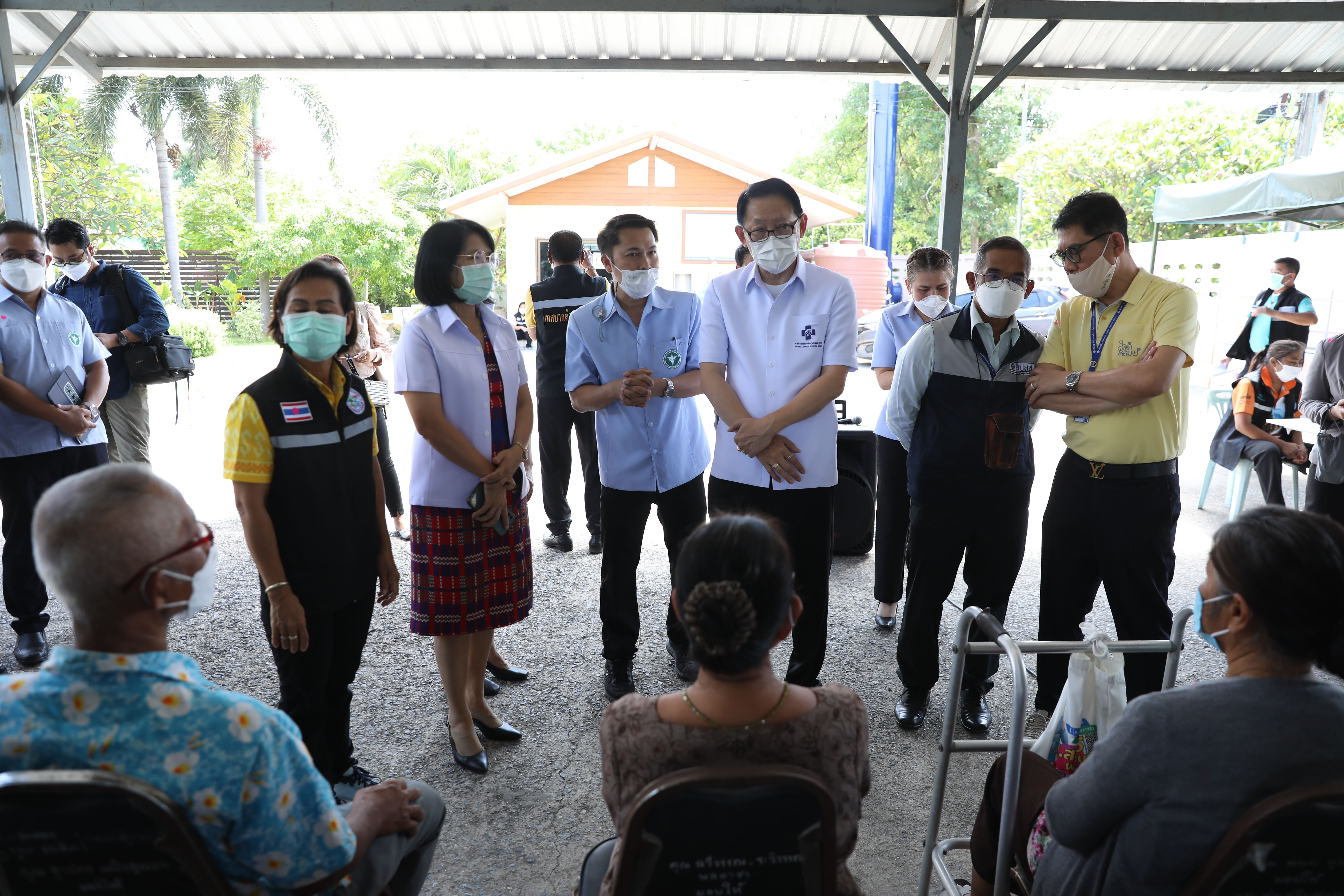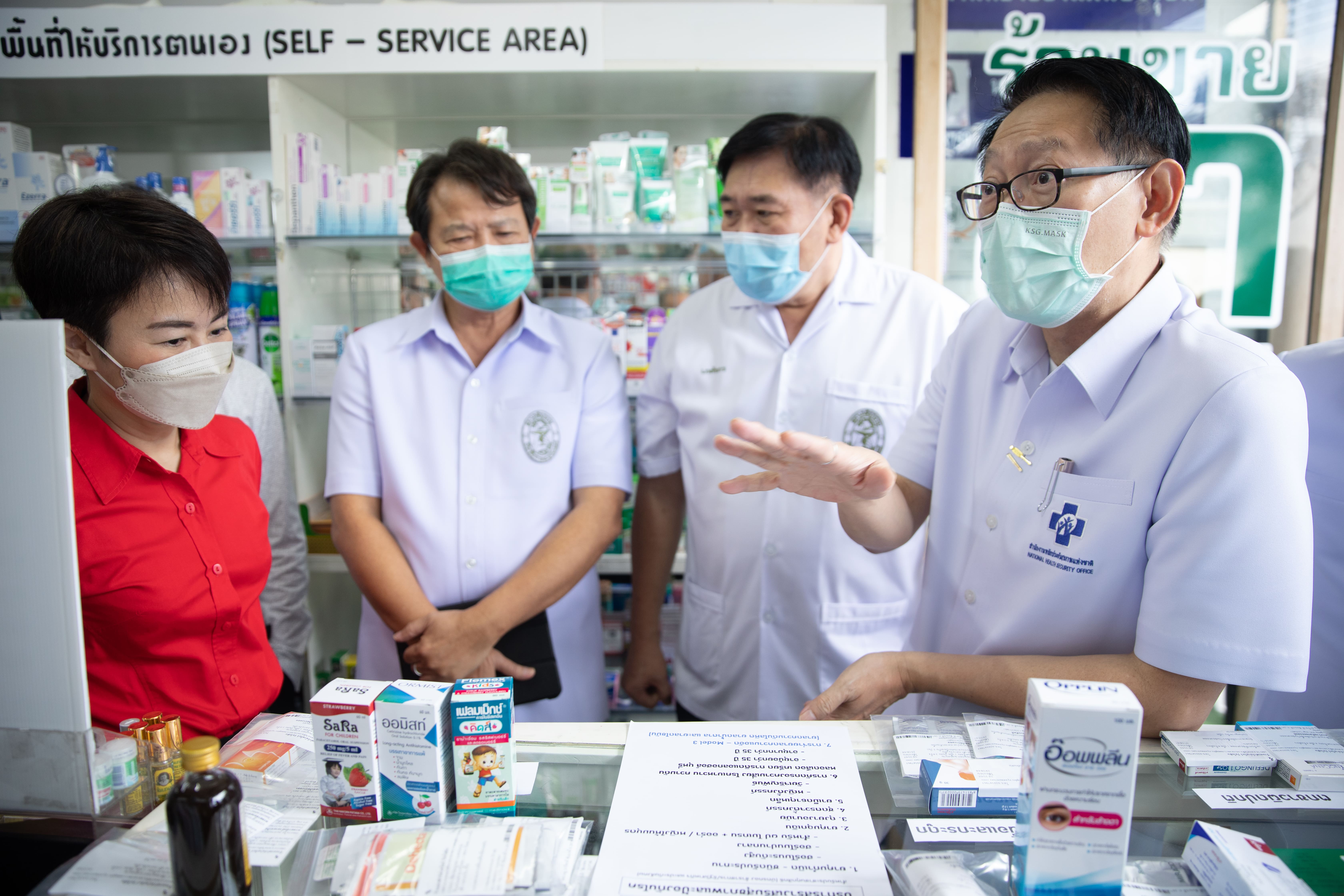
- Home
- DescriptionNews
20 positive changes contributed by Thai UCS

20 positive changes contributed by Thai UCS
The introduction of the Universal Coverage Scheme two decades ago has contributed to the great advancement of the Thai health system while creating positive social and economic impacts that improve people’s health and lift many out of poverty.
November 19 is the establishment day of the National Health Security Office (NHSO), which is also the day that the Universal Coverage Scheme (UCS) was introduced in Thailand — leading to the expansion of healthcare coverage to 99% of the Thai population.
.jpg)
The UCS became reality in 2002 under the leadership of the first NHSO secretary-general Dr Sanguan Nitayarumphong, who spearheaded the development of the operational and financial system behind the achievement of UCS.
As 2022 is the 20th year of NHSO’s and UCS’ establishment, the current NHSO secretary-general Dr Jadej Thammathataree said that it was the auspicious time to celebrate the success of UCS and look ahead to the sustainability of UCS in the long run.
The NHSO has set up strategies for each phase of UCS to address the healthcare needs and catch up with the disease trends.
Phase one (2003-2007) highlights the development of health benefits package. Phase two (2008-2011) aims for increasing efficiency of the scheme and levels of public participation.
Phase three (2012-2016) seeks ways to sustain the scheme and expand coverage to everyone living on Thai soil. Phase four (2017-2022) strengthens health finance and good governance.

The fifth phase (2023-2027) will continue steering toward the goals set in the previous phase while focusing on the sustainability of the scheme, expanding primary care coverage and essential care, said Dr Jadej.
It will also address the Bio-Circular-Green (BCG) economic model in UCS management and aim for making NHSO a high-efficient organization.
Multiple targets are set for the fifth phase, including reaching 80% effective health coverage and 89% inpatient compliance rate by 2027.
Health expenditure must not exceed 5% of Thai GDP and 20% of government spending.
The percentage of households experiencing catastrophic health expenditure must be less than 0.25%

“Entering the third decade of NHSO and UCS will need participation from multi-stakeholders to increase the efficiency of our organization and the health scheme,” said Dr Jadej.
A lot of work needs to be done in the future, he said.
In celebration of the establishment of NHSO, it’s worth looking back to the history of UCS which has positively impacted on the health system, and economic and social aspects of Thailand in the past 20 years.
Here are 20 positive changes contributed by UCS.
1. Since the introduction of UCS, the number of households experiencing catastrophic health expenditure declined from 663,000 in 2002 to 475,500 in 2021 — equivalent to 4.06% and 2.10% of Thai households, respectively. In 2002, around 216,000 households, or 1.32% fell under the poverty line because of out-of-pocket health expenses.
This number was reduced to 49,000 or 0.22% in 2021.
2. Several indicators show that the management of UCS fund is highly cost-effective. The NHSO and its partnered organizations have constantly revised the guidelines and criteria of medical fee reimbursement, making the UCS system answer healthcare needs and catch up with new disease trends.
3. The UCS emphasizes public participation by including multi-stakeholders in the decision on the health benefits package and health programs. These stakeholders include health providers, patients, civil society groups, health professionals, and local administrative organizations.
4. The design of UCS benefits package is based on scientific evidence and academic studies. It has involved multiple research institutes, including Health Intervention and Technology Assessment Program (HITAP), Health Systems Research Institute (HSRI), and Thailand Development Research Institute (TDRI). This approach helps enhance Thailand’s evidence-based policymaking.
5. The UCS has improved the health outcomes of vulnerable groups, including ethnic minorities, monks, inmates, and undocumented people.
6. Antiretroviral drugs have been included in the UCS benefits package since 2006, saving the lives of several thousand HIV patients. As of 2022, more than 297,000 patients receive antiretroviral drugs regularly under the scheme.
7. Kidney replacement has been provided to UCS beneficiaries since 2008, improving the quality of life of people living with chronic kidney disease. Nearly 63,500 patients receive regular treatments, which cover peritoneal dialysis, hemodialysis, and kidney transplants. Automated peritoneal dialysis was introduced into the UCS benefits package on February 1, 2022.
8. Treatments for high-cost diseases are introduced in UCS benefits package too, including medication for thalassemia, cancers, and rare diseases, and transplantation for liver, heart, and cornea.

9. Many health programs have been implemented under the UCS to increase people's access to healthcare. Those include oral health checkups in schools and rural areas, fast tracks for patients requiring corneal transplantation, heart valve repair surgery, and surgery for stroke.
10. The UCS ensures access to medicines through the development of drug selection and purchase systems, which covers many types of medicines from generic and orphan drugs to antidotes. This system was co-created by NHSO, Public Health Ministry, Government Pharmaceutical Organization, Thai Red Cross Society, and relevant organizations.
11. Hospital crowding has gradually been reduced by many health programs that keep patients out of hospitals or reduce their time staying at hospitals. These programs include home chemotherapy, homecare, medicine home delivery, telemedicine, and one-day surgery service. One initiative involves community pharmacies as the entry points to primary care, in which patients can consult pharmacists and receive medicines for common diseases without traveling to hospitals.
12. The UCS emphasizes health promotion and disease prevention at all levels — from hospitals and clinics to community health centers.
13. Technology is the major component of UCS management. The NHSO has developed an identification verification system to speed up healthcare services and reimbursement processes while preventing errors and fraudulence. E-claim systems and artificial intelligence are deployed in the audit process. Big data is prioritized and used for collecting health information necessary for research and the improvement of the healthcare scheme.
14. Consumer protection is integrated into the operation of UCS. For example, NHSO launched 1330 contact center where patients can request assistance, suggest solutions, and complain about the healthcare scheme. They can also voice out through NHSO social media platforms, including Facebook and Line. In-person complaint centers are located in hospitals and the NHSO provincial and regional centers. In addition, NHSO sets up a unit to settle medical error cases, many of which receive emergency funds to compensate for the medical errors.
15. The UCS emphasizes the role of local governments in improving the health system. Some initiatives were launched to encourage the contribution of local governments. Those include the Provincial Rehabilitation Fund which provides financial resources to 58 Provincial Administrative Organizations to run rehabilitation centers, and the Long-Term Care fund which aims for improving elderly care in governing areas of 7,028 Local Administrative Organizations (LAOs). Currently, around 99.58% of LAOs, or 7,741 LAOs receive funding under UCS.
16. During the COVID-19 pandemic, the UCS became the mechanism to mobilize health finance for emergency response. Thai people can access free coronavirus testing and treatment, self-test kits, and vaccines. Due to the availability of health funds, the Thai government was able to introduce innovative ways of care. For example, COVID-19 patients can access telemedicine services while isolated at home. The NHSO partnered with local pharmacies to dispatch machines and support pharmacists to provide consultants to mild-symptom patients.
17. The coverage of primary care services has been expanded through UHC. They include, but are not limited to, community mental healthcare, rehabilitation, palliative care, and Thai traditional medicines.
18. Increase healthcare access is one of the key goals of UCS. Four policies are implemented to increase access; “OP Anywhere” which beneficiaries can request free primary care at any health entry points; “Cancer Anywhere” which beneficiaries can get cancer treatment at any hospital regardless of their hospital registry; inter-hospital transfer without using paper documents; and online re-register with hospitals of beneficiaries’ choices and be effective immediately.
19. Thailand’s UHC achievement brings the country to the forefront of the global health agenda. It has been a strong supporter of the United Nations’ Sustainable Development Goals, which include the world’s ambition to achieve UHC by 2030. On UHC Day, (December 12) Thailand has shown a strong position to promote UHC and urges all leaders to accelerate their effort to increase people’s access to quality and affordable care.
20. Despite achieving UHC, the health benefits of each of the Thai government’s healthcare schemes are still different and unequal. The NHSO has pushed forward the close of this gap, including the launch of Universal Coverage for Emergency Patients (UCEP) and equalizing the health benefits in the areas of long-term and palliative care for the elderly.

